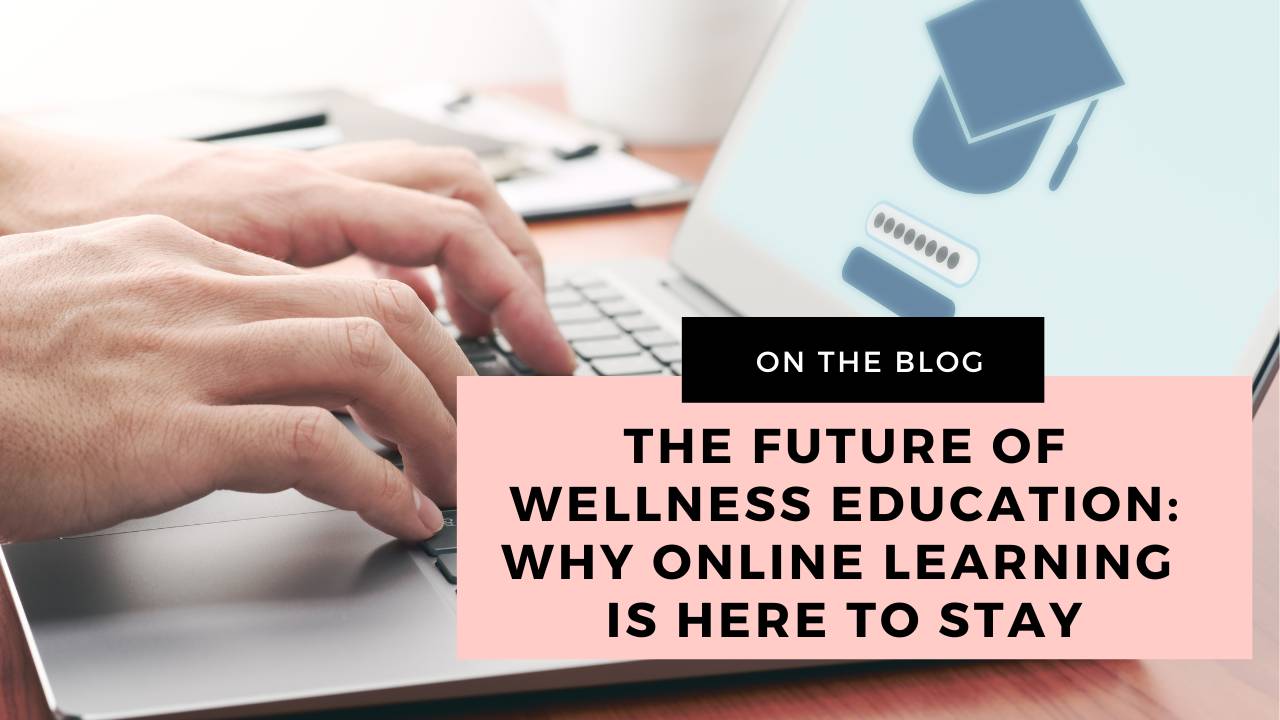
The Future of Wellness Education: Why Online Learning is Here to Stay
Sep 10, 2025Remember when "online learning" felt like a temporary fix? A band-aid solution for when we couldn't meet in person?
Those days are long gone.
What started as a necessity in 2020 has evolved into something far more powerful: a complete transformation of how people learn, grow, and transform their health.
And if you're a wellness practitioner still thinking online education is just a trend that will fade away, I have some eye-opening insights to share with you.
The Numbers Don't Lie
Let's start with some facts that might surprise you:
- The global online education market is projected to reach $350 billion by 2025 (and wellness education is one of the fastest-growing segments)
- People report they prefer learning at their own pace rather than fixed schedules
- Online wellness programs have 2.3x higher completion rates than traditional in-person workshops
But here's what the statistics don't tell you: why online wellness education isn't just surviving - it's thriving.
What's Really Driving This Shift
1. Accessibility Breaks Down Barriers
Sarah lives rurally and couldn't access quality nutrition coaching locally. Now she's transformed her relationship with food through an online program and has become one of her practitioner's biggest success stories.
James couldn't commit to weekly 2-hour workshops. But he could engage with 15-minute video lessons during his commute and participate in evening group calls.
Online learning doesn't just reach more people - it reaches the RIGHT people who genuinely want to change but were previously excluded by geography, schedule, or circumstances.
2. Learning Happens in Real Life, Not Just Classrooms
Here's something fascinating: when clients learn about meal prep on Monday and actually implement it in their kitchen on Tuesday, the learning sticks better than if they'd spent 3 hours in a workshop talking about it.
Online education allows for implementation in real-time, in real environments, with real challenges. It's education that lives alongside daily life rather than separate from it.
3. The Community Effect is Stronger Online
This one surprises people. Many assume online learning is isolating, but the opposite is often true.
In our academy, practitioners tell us their online group programs create deeper connections than their in-person workshops ever did. Why?
- People share more openly behind a screen
- Shy participants have equal voice in chat discussions
- Community continues 24/7, not just during scheduled sessions
- Members connect across time zones and backgrounds they'd never meet locally
The Unique Advantages of Online Wellness Education
Personalisation at Scale
Traditional education follows a one-size-fits-all model. Online wellness education can adapt to individual learning styles, pace, and circumstances.
Your clients can:
- Rewatch complex nutritional concepts until they click
- Skip ahead if they already understand basic principles
- Access additional resources for their specific health conditions
- Get personalised feedback through surveys and assessments
Reduced Performance Anxiety
Many people feel self-conscious discussing personal health challenges in group settings. Online environments often feel safer for vulnerability, leading to more honest sharing and better outcomes.
Integration with Daily Life
Instead of learning about stress management in a workshop, clients can practice breathing techniques during their actual stressful workday using your app or audio recordings. The learning becomes part of their lifestyle, not separate from it.
What This Means for Wellness Practitioners
If you're still on the fence about moving your practice online, consider this: your clients are already learning about health and wellness online. The question is whether they're learning from you or from someone else.
The Hybrid Model is Winning
The future isn't entirely online OR entirely in-person. It's both.
The most successful wellness practitioners we work with use what we call the "Hybrid Approach":
- Online education for knowledge transfer, skill building, and ongoing support
- In-person or live virtual sessions for personalised guidance, accountability, and deeper connection
- Community platforms for peer support and motivation
- Self-paced resources for review and reinforcement
Quality Over Convenience
Here's a crucial point: online learning isn't popular just because it's convenient. It's popular because, when done well, it's more effective.
Well-designed online wellness education that includes:
- Interactive elements
- Real-world application
- Community support
- Personalised feedback
- Multiple learning modalities
...consistently outperforms traditional methods.
Addressing the Skeptics
"But people need human connection!"
Absolutely. And online learning, done well, provides MORE human connection, not less. Our academy members regularly tell us their online communities are more supportive than any in-person group they've been part of.
"Online learning lacks accountability!"
Only if it's designed poorly. Well-structured online programs often provide BETTER accountability through regular check-ins, progress tracking, peer support, and automated reminders.
"People don't complete online programs!"
This is true for poorly designed programs. But when online education includes community, accountability, and real-world application, completion rates often exceed in-person alternatives.
The Bottom Line
Online wellness education isn't replacing human connection - it's enhancing it. It's not diminishing the practitioner's role - it's amplifying your impact.
The practitioners who embrace this shift aren't just surviving the changes in our industry; they're thriving. They're reaching more people, creating better outcomes, and building more sustainable businesses.
The question isn't whether online learning is here to stay. It is.
The question is: Will you be part of shaping its future, or will you be left behind?
The future of wellness education is being written right now. Make sure you're holding the pen.


